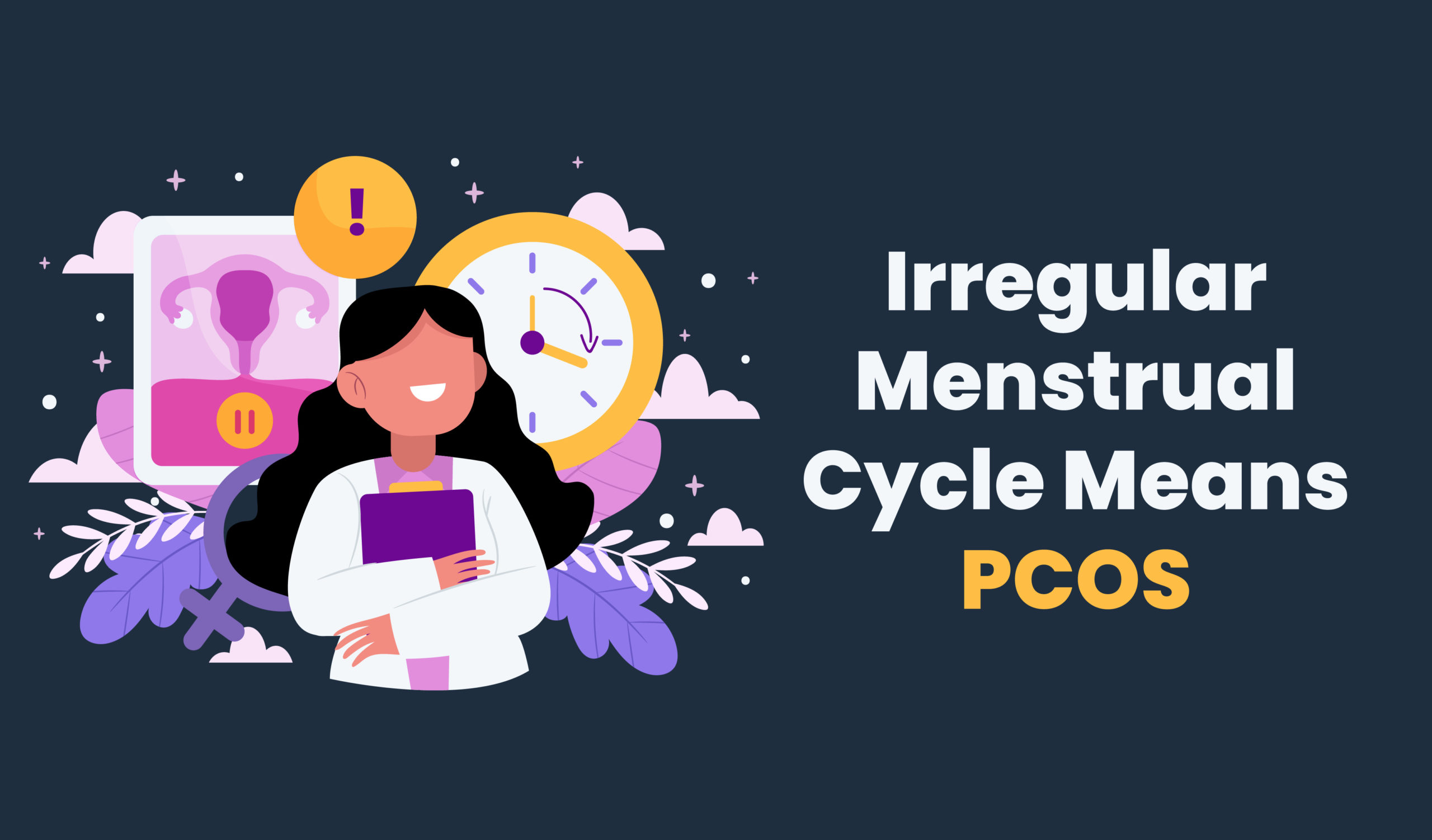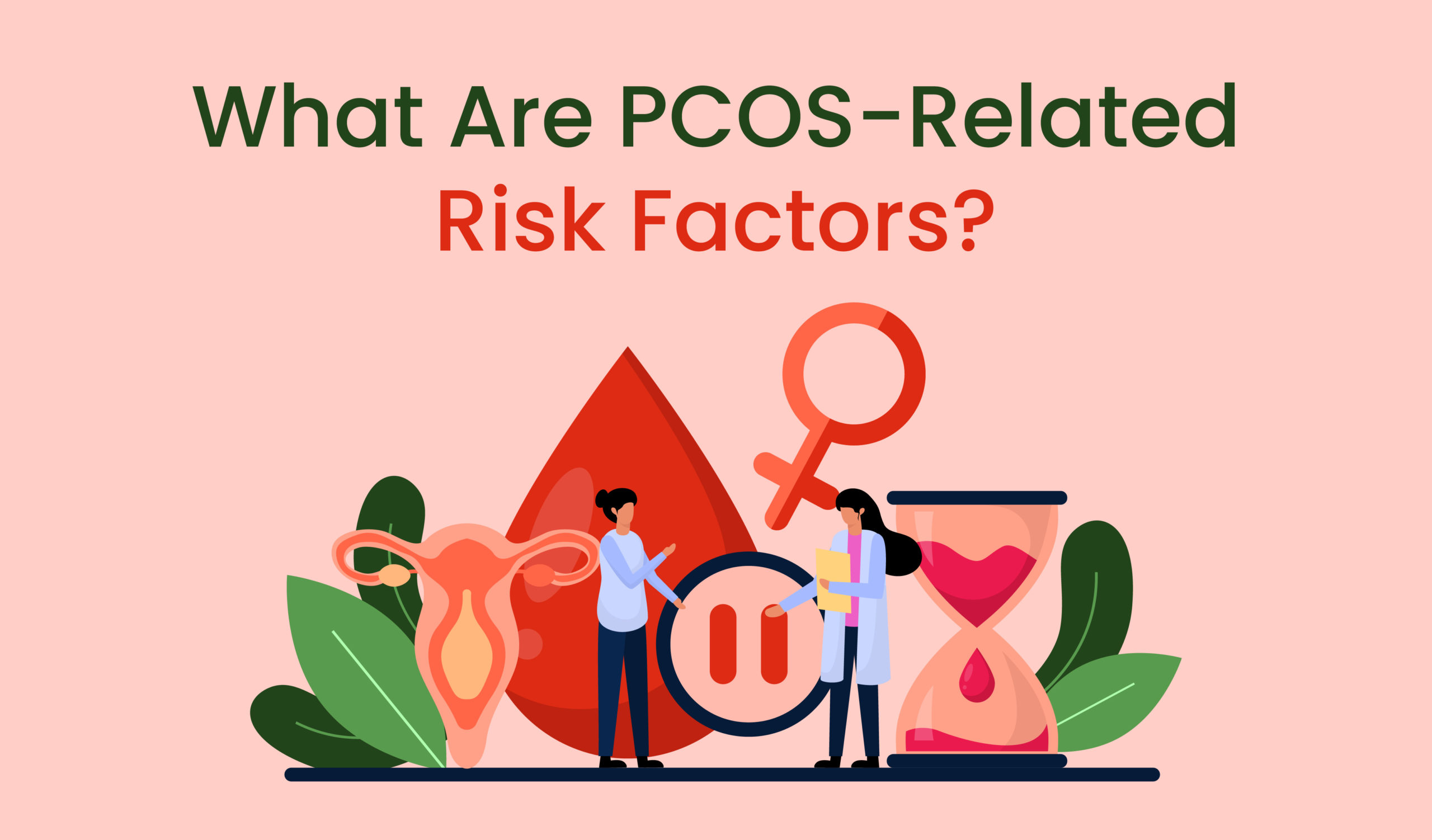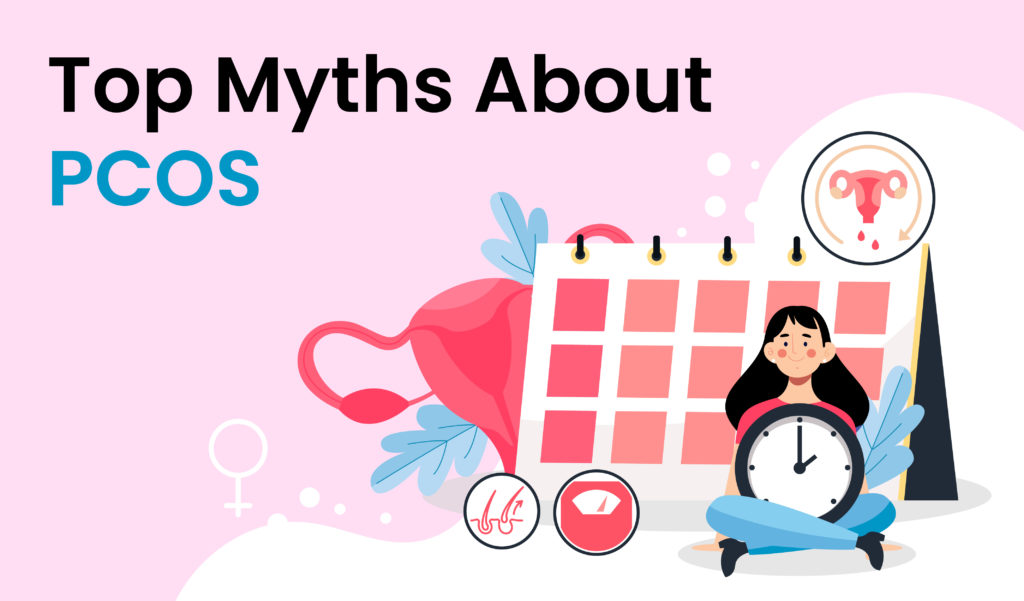- July 1, 2022
- By: Arias Hospital Nashik
Top myths about PCOS?
A hormonal imbalance in a woman’s body leads to the hormonal illness known as polycystic ovary syndrome (PCOS) or polycystic ovarian disease (PCOD), which is frequently undetected. A diagnosis of PCOS can be confirmed if 10% or more of women of reproductive age have irregular menstrual cycles, high levels of the male hormone androgen, high levels of insulin, and tiny ovarian cysts.
While women with PCOS already experience worry and stress in general, there are several myths or misconceptions about the condition that may cause them even more distress. Not to worry; this blog post aims to dispel common misconceptions regarding PCOS.
- Myth – Women with PCOS cannot get pregnant
This assertion is wholly false. Although women with PCOS may take longer to conceive, they do not completely fail to do so. This delay is brought about by either hormonal changes that have an impact on ovulation or problems with the quality of the eggs.
The best course of action in this situation is to get in touch with your fertility doctor say the experts from the Best Gynecology Hospital in Nashik, who will help you become pregnant naturally or with some medical assistance. Just have faith that you can quickly conquer PCOS with the appropriate combination of diagnosis, exercise, diet, sleep, and hydration.
- Myth is that PCOS has nothing to do with pregnancy
While PCOS does affect pregnancy, research has shown that PCOS-affected women are also more susceptible to additional dangers, such as high levels of diabetes, endometrial cancer, high cholesterol, and cardiovascular disease.
Whether or not you are trying for a baby, ignoring these could have serious long-term health consequences that you should discuss with your doctor.
- Myth: “Only obese women develop PCOS.”
The most typical misunderstanding is this one. Experts concur that PCOS can occasionally affect overweight or obese women, but they have not stated that PCOS never affects women who are at their ideal weight or who are underweight say the Best Gynecologist in Nashik. PCOS or PCOD, which may be solely brought on by insulin resistance or androgen hormones, can occur in even women who are at a healthy weight.
Another situation that calls for caution is lean PCOS, where even underweight women experience the same symptoms such as irregular periods, difficulty conceiving, and absence of ovulation.
- Myth: “Just losing weight alone can cure PCOS”
You may not be able to totally eliminate PCOS with correct exercise, nutrition, and weight loss, but you can lower the blood sugar level in your hormones and increase the efficiency with which your body uses insulin. You can increase ovulation and enhance insulin sensitivity with just a 10% weight decrease.
- Myth: “Polycystic ovaries are common in women with PCOS.”
This name is incorrect. There have been instances where ladies with cysts didn’t have PCOS and vice versa for those without cysts.
Both times, the symptoms included irregular or non-existent periods, excessive facial or body hair growth, head hair thinning, and weight gain or trouble decreasing weight.
- Myth: People with PCOS have acne and errant hair growth.
Some ladies have facial hair, while others don’t. Everyone is affected differently by the elevated amounts of androgen in the body. As a result, not all PCOS sufferers experience excessive hair growth.
- Myth: Women with PCOS can avoid using birth control.
There have been occasions where women with PCOS have ovulated spontaneously, despite the fact that generally speaking it becomes more difficult for them to become pregnant states the experts from the Best Gynecology Hospital in Nashik. Unwanted pregnancies could result from this. Additionally, studies have shown that both PCOS-positive and PCOS-negative women have the same number of children. So using contraception is always a good idea.

- Myth: Irregular menstrual cycle means PCOS
Human bodies are distinctive. A woman’s menstrual cycle should last between 21 and 35 days. Uterine fibroids, a poor diet, thyroid issues, hormone imbalances, and stress levels are just a few possible causes of irregular periods. However, if your menstrual cycle lasts longer than 35 days or is shorter than 21 days, and for a treatment strategy, you should speak with a reproductive professional.
- Myth: PCOS is solely related to the menstrual cycle.
This assertion is false. Here, being sluggish can result in issues with the liver and heart. If I may question how, in PCOS, the lipid levels fluctuate erratically, raising blood pressure and, in some cases, causing heart attacks or even strokes.
Patients with PCOS who are obese and should be identified with non-alcoholic liver fatty acids may find things to be risky. In other situations, PCOS may even affect the thyroid or adrenal glands if left untreated. PCOS can have a very serious effect by raising the risk of breast and endometrial cancer. All of this refutes the notion that PCOS is solely a menstrual cycle issue.
- Myth: “PCOS is self-diagnosable” is a myth
You are erroneous if you believe that all PCOS symptoms may be entirely self-diagnosed. While treating weight gain, mood swings, and acne on your own may seem doable, managing the other issues we just talked about could become challenging.
In addition to doing the aforementioned, you may need to inform your fertility specialist of your progress and inform her whenever you notice any changes or a new symptom (s). This will provide you with greater healthcare options and help you manage the syndrome.
- Myth: “PCOS is an uncommon disorder that only affects a few people.”
There is no doubt that this is incorrect. In India, women who are of childbearing age on average have PCOS. In women (of reproductive age) with hormonal endocrine diseases, PCOS syndrome has become extremely prevalent. Even though fewer than half of PCOS-afflicted women receive official diagnoses, thousands of them could still be uninformed.
- Myth: “PCOS exclusively affects women over the age of 30.”
This is untrue, no. Age bias is not present in PCOS. Even teenage girls and women of all ages are susceptible to the illness.

What are the PCOS-related risk factors?
Here, we want to restate. If left untreated, PCOS may increase the risk of diabetes and endometrial hyperplasia, a condition in which the uterine lining thickens and may even progress to cancer. Infertility, endometrial cancer, diabetes, abnormal lipid profiles, cardiovascular risks, and obstructive sleep apnea are the main complications that PCOS may cause.
While all women could benefit from making lifestyle changes to control their menstrual cycles and lower their blood pressure, cholesterol, and sugar levels, those who are attempting to conceive should seek professional guidance to increase ovulation. Although PCOS may still be a poorly understood illness, there are many different ways to manage it. The optimum solutions for you can only be determined by a specialist. We wish you well in overcoming it.


